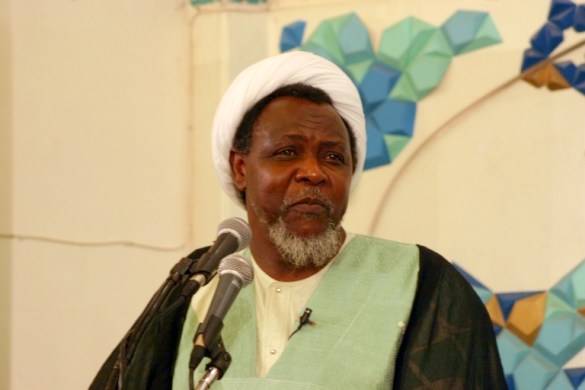
Nigeria is in the throes of crises. They range from political crisis, economic crisis, social crisis to security crisis, the last being the most serious and the most daunting. The security crisis is hydra-headed as cultists, ritualists, armed robbers, communal warriors and lately resurgent Boko haram terrorists, murderous kidnappers, bandits hold the nation by the jugular. The security agencies seem to be overwhelmed by the large number of violent extremists who inundate the land.
Given this scary scenario of insecurity nationwide, it is worrisome that the nation may sleep walk into another intractable security challenge, with a sectarian dimension, if the current Shiite crisis, arising from the confrontation between the sect members and the security agencies, is not handled with utmost care. Indoctrinated religious fanatics are very dangerous to contend with, as the nation has learnt with bitter consequences from the Boko haram terrorists. The Islamic Movement in Nigeria (IMN), otherwise known as Shiite or Shia Islam, as a religious sect, is led by Sheikh Ibraheem El- Zakzaky since the 1970s with the ultimate goal of establishing an Islamic state in the country under Islamic legal and administrative system. As foreign policy, it is a pro-Palestinian body dedicated to restoring the Palestinians to their homestead now occupied by Israel since 1948.
El-Zakzaky is reputed to have grown the sect from scratch to an estimated three million devoted adherents. The Shiites are regarded as a fringe Muslim group by the preponderant majority Sunni Muslims in the north, creating a fractious relationship between the two Islamic sects. While the Shiites claim to adopt non violent strategy to achieve their goal, their apparent disregard for the rights of others, especially by blocking roads during their processions thereby getting other road users stranded for hours, was to pitch them against other members of the community. This disregard for the right of passage for others was to lead to tragic consequences for the Shiites. On July 25, 2014, thousands of Shiites had blocked the busiest intersection in Zaria as they gathered to observe their annual Qud’s Day celebrated worldwide by Shiites to mark their opposition to Zionism and Israeli occupation of Palestine. The road closure had led to a clash with the military leaving 16 Shiites dead, including three sons of El-Zakzaky. The blocking of roads during Shiites’ processions did not stop and on December 12, 2015, a similar blockade which denied passage to Army Chief of Staff, Lt. Gen. Yusuf Buratai, was to lead to a violent confrontation over a two-day period, with over 300 Shiites killed, including three other sons of El-Zakzaky, while the sect leader and his wife were arrested.
The federal government must be wary of dragging the nation into the playground of international political intrigue given the stated affiliation of the Shiites to radical Iran that is in the thick of the Middle East conflict. The Shiites profess peaceful strategy of achieving their goal of an Islamic State. But there are no guarantees that the strategy cannot change. As cautioned by Nnamdi Obasi, an analyst with the International Crisis Group, the chances of the Shiites evolving into militancy is low, but with the violence visited on the group, ‘including the killing of its senior members, detention of its wounded leader and demolition of its facilities, the group could be approaching a tipping point’’.
The North, and by extension the country, is wracked with too many violent situations and it will be tragic if the Shiite crisis is allowed to compound an already bad security situation. We would like to strongly advice the federal government and the security agencies to follow the rule of law in the Shiite crisis.
END

Be the first to comment